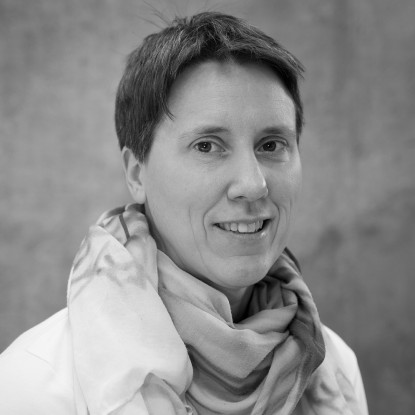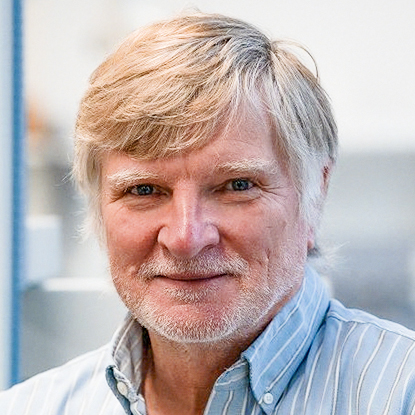| Spokesperson: | Prof. Dr. Steffen Hardt |
| Funding period: | 01/2024–12/2027 |
| Website: | https://www.tu-darmstadt.de/transieves/ |
| Summary: | The TRANSIEVES research group is investigating transient sieves as a new technological concept for separating substances from a liquid. The pores of a transient sieve change their permeability as a function of time. This should provide sieves with novel and useful properties, e.g. improved selectivity and/or lower energy consumption. The aim is to understand the basic phenomena involved in passing through transient sieves. Further objectives are the experimental determination of the transient properties of sieves, the optimisation of the spatial structure of transient sieves and the temporal structure of permeability. The advantages of transient sieves are to be demonstrated and the findings are to contribute to the development of new separation technologies. |
| Coordinator: | Prof. Dr.-Ing. Markus Engelhart |
| Funding period: | 07/2023–06/2026 |
| Website: | https://www.iwar.tu-darmstadt.de/rephorm |
| Summary: | Within the joint project RePhoRM, a technological and organizational joint solution for phosphorus recycling in the Rhine-Main region is being developed and implemented. Based on the mono sewage sludge incineration capacity and its potential expansion in the FrankfurtRhineMain metropolitan region, a cooperative phosphorus recovery from sewage sludge ash is to be implemented. |
| Coordinator: | Prof. Dr.-Ing. Peter Pelz |
| Funding period: | 09/2023–08/2025 |
| Website: | Projekt summary on BMBF website “Digital GreenTech – Umwelttechnik trifft Digitalisierung” |
| Summary: | Water management in Germany is neither resource-efficient nor does it meet demand. The project centres on flexible, efficient and robust water supply systems of the future, in which modules and components act autonomously within a predefined framework. When the cyber-physical agents communicate with each other in the cyber-physical water market economy to be designed, future performance promises will be remunerated with “money”. The market-inherent resource and allocation efficiency enables efficient, resource-saving solutions. Building on this, the cyber-physical water market economy is to be validated and implemented in a real demonstrator system. |
| Coordinator: | Prof. Dr. Susanne Lackner |
| Funding period: | 09/2023–08/2026 |
| Website: | https://gepris.dfg.de/gepris/projekt/515585785 |
| Summary: | Nitrous oxide (N2O; laughing gas) is a potent greenhouse gas and ozone depleting substance. Over the last century the atmospheric concentration of N2O has been constantly on the rise as a consequence of the invention of man-made nitrogen fixation (the Haber-Bosch process) and intensification of agricultural fertilization practices that resulted in a severe anthropogenic imbalance of the global biogeochemical nitrogen cycle. Despite the fact that N2O emissions have been recognized to play an important role in climate change, corresponding mitigation strategies remained underexplored. The aim of this interdisciplinary and collaborative project is to investigate N2O respiring bacteria (NrB) and their applicability to mitigate N2O emissions from wastewater treatment plants. The two main objectives are (i) to identify the best-suited NrB for the task and (ii) to expose these organisms under continuous conditions that are realistic for wastewater treatment. The work program includes a thorough microbiological characterization of representative NrB in short-term batch experiments including scrutiny of nitrous oxide respiration towards the presence of dissolved oxygen and other relevant factors such as carbon source and impact of the wastewater matrix. Suitable NrB will be exposed to wastewater-like conditions in continuous long-term experiments. These trials will be performed in lab-scale reactors under varying conditions, e.g. dynamic changes in the dissolved oxygen concentration. The project will provide a suitability assessment regarding the use of NrB under wastewater conditions and the implementation of NrB in wastewater treatment systems. It will also contribute to exploit the almost untouched natural resource of N2O respiring bacteria. |
| Contact Person: | Prof. Dr. Christoph Schüth |
| Funding period: | 03/2023 – 02/2026 |
| Website: | https://w-rm.de/warm/ |
| Summary: | Groundwater is the key water resource for the Frankfurt/Rhine-Main metropolitan region. However, the quality of groundwater is at risk and the amount of water available in the growing region is also becoming scarcer. The WaRM project aims to reduce the potential for conflict over water resources by investigating suitable measures to increase water supply and quality and to improve water use efficiency. To this end, a water system model of the Frankfurt/Rhine-Main metropolitan region will be developed, which will be used to analyze the effects of measures, taking into account possible future scenarios. |
| Contact Person: | Prof. Dr. Holger Lutze |
| Website: | More Information |
| Summary: | In Hessen, too, climate change poses major challenges for water management. One of the primary objectives is to secure the supply of (drinking) water for the various sectors of society. The aim of the Kompetenzzentrum Wasser Hessen (KWH) is to develop innovative and practical solutions on the basis of scientific findings. In doing so, the KWH pursues a multidisciplinary approach and connects stakeholders from science, practice, administration and politics, thus creating a value chain to put science into practice and master the highly complex challenges in the field of water. |
| Contact Person: | Prof. Dr. Massimo Rolle |
| Funding period: | 1272024 – 11/2025 |
| Website: | Mehr erfahren |
| Summary: | Electrokinetic (EK) techniques rely on the application of electric fields to enhance species mobility in porous media and have a great potential in many fields of science and engineering. This project focuses on their application for remediation of contaminated sites and, in particular, on the coupling of electrokinetics with in situ contaminant biodegradation. |
| Contact Person: | Prof. Dr. Holger Lutze |
| Funding period: | 10/2024 – 09/2025 |
| Website: | Mehr erfahren |
| Summary: | In many regions, it is of utmost importance to harvest excess water during precipitation events to alleviate water scarcity in dry periods, as a simple but powerful strategy for adapting to climate change in urban areas. The recovered water can then be used to flush toilets or for irrigation and cooling purposes, so drinking water can be substituted and thus saved. Yet, runoff water can be contaminated after contact with urban surfaces (streets, building materials). |
projects completed
| Contact Person: | Prof. Dr. Holger Lutze |
| Funding period: | 2023 – 2024 |
| Summary: | As part of the Surface Waters Ordinance (OGewV), HLNUG has been monitoring the concentrations of trace substances in Hessian surface waters since 2007. Particularly in agricultural areas, it was observed that plant protection products (PPPs) could be detected in Hessian watercourses, in some cases all year round. The aim of the project is to investigate the occurrence and behavior of PPPs in the southern Hessian region in more detail and, if necessary, to determine recommendations for action that will lead to an improvement in the water quality of exposed watercourses. |



